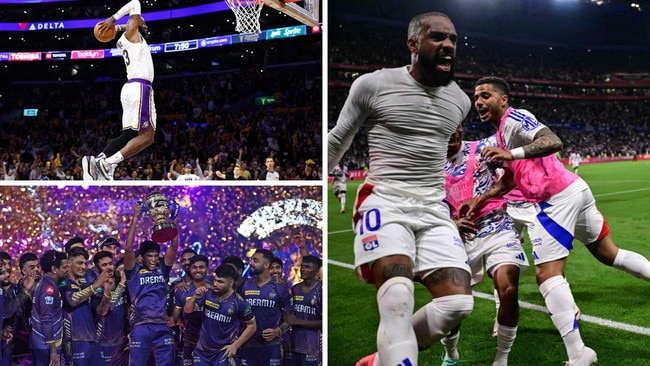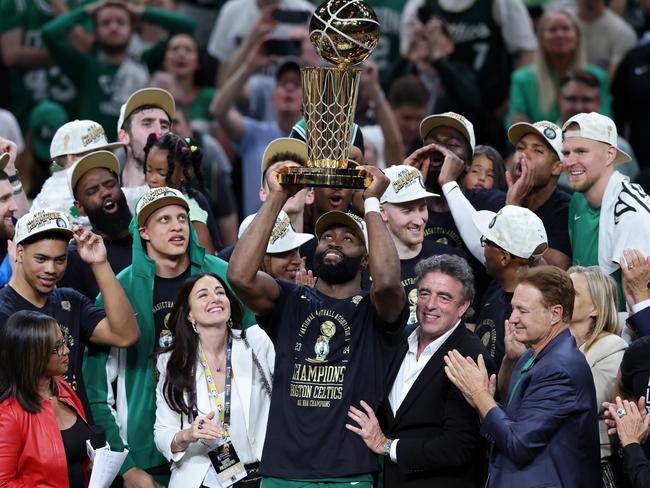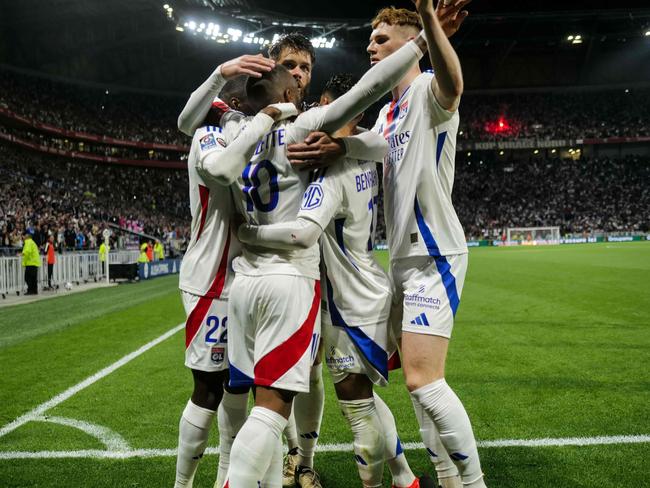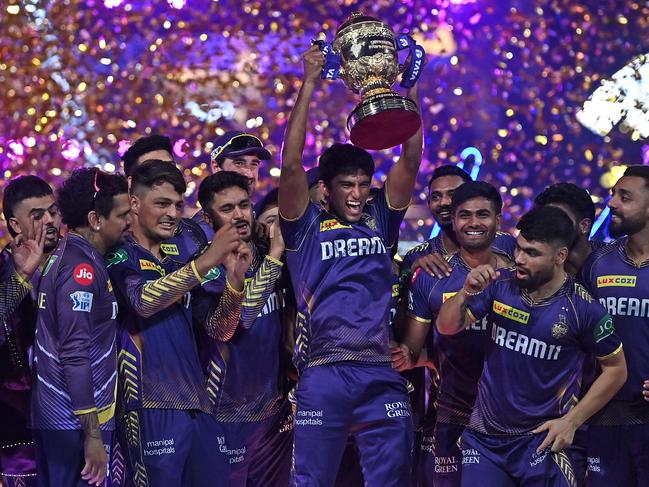Massive new NBA TV deal may be outlier after French Ligue 1 TV disaster rocks sports rights
While the NBA is about to sign a mega TV deal, sports rights expert Colin Smith tells SHANNON GILL that the lessons from European football suggest the days of exponential global sports rights growth may be over.

NBA
Don't miss out on the headlines from NBA. Followed categories will be added to My News.
The broadcasting rights riches that have been fuelling world sport growth for decades may be about to grind to a halt, warns Australia’s foremost sports rights expert.
Despite the serious arrival of streaming services into global sports rights markets over the last 12 months, Colin Smith, an adviser to major sports and broadcasters for decades, says we should not be deceived by the NBA’s imminent mega deal.
Elsewhere things aren’t quite as healthy.
“There’s been a real wake up call in Europe that things are not going to keep rising to the same extent it has,” Smith tells CODE Sports.
The NBA is about to put the finishing touches on a reported $76 billion rights deal for 11 seasons, starting after the 2024-25 season. The continued popularity of the league and its plentiful content (an 82 game regular season, playoffs and a newly created in-season tournament) have combined with the new interest of likely streaming partner Amazon, and ESPN and Fox’s launch of its joint sports streaming venture (Venu) to create a windfall that will almost triple the existing deal.
Last year the NFL started a ten year deal worth at least $110 billion but has added cream to that cake by selling individual playoff games and Christmas Day games to streamers like Peacock and Netflix. It’s been speculated they may go back to market early given the NBA’s bonanza.

And while historically US sports rights have been an accurate guide to where the rest of the world goes, Smith believes recent events in the European football market may reveal a less glittering reality.
The English Premier league sold its domestic rights for 2025-2029 for US$8.4billion earlier this year. That total figure trumped previous figures, however it is clouded by it being a four year deal as opposed to the previous three year deals, and containing as many as 99 extra games.
“The only reason they got any increase was because they added more games to be broadcast,” Smith says.
“If you look at the rights per game, I think it’s actually flatlining.
“But the French League is the classic,” he says of the bigger warning across the channel.
France’s Ligue 1 football rights are up for sale, yet it appears nobody wants them.
Or at least not at the prices being asked.
Amid forecasts of a 70% increase in rights fees, private equity invested hard in the commercial arm of the league selling rights for 2024-2029.
However, bids were reportedly 30% below the one billion Euros starting price, before individual negotiations showed a similar lack of interest.
“The biggest broadcaster in France, Canal Plus, said ‘we’re not bidding, we’re not interested,” Smith says.
“That’s like Foxtel or Channel Seven saying we’re not interested in the AFL.”

Just two months out from the season’s kick off, Ligue 1 is now talking about creating its own direct to the public streaming offering to broadcast matches
Smith says even if a service was to attain the numbers of subscribers wanted, the financial model would still be 30-40% below the original figure wanted due to the substantial cost of setting up its own production and broadcasting channel.
“But they are that far behind the eightball, they won’t get the subscription numbers,” Smith says.
Some reports have the rights now worth only half what they once were. It’s a worst-case scenario that would send chills down sporting administrators’ spines.
What makes it even more concerning is that football is far and away the number one sport in France.
“It’s football and there’s a little bit of rugby, but it’s tiny compared. So when the broadcasters say we’re not at the table for a ‘must have sport’, that’s a real wake up moment.”
So does that mean the sports rights bubble has burst in Europe, but is still holding strong in the USA? For Europe Smith thinks that may well be right, but believes there’s a caveat to the perceived robustness of the US market.
“I agree with that, but that only applies to the NBA and NFL and college football and basketball in the US,” Smith says.
“I don’t think that necessarily applies to the likes of the NHL or MLB. I don’t think they’ll get the same dollars next time.”
Smith sees the NFL and NBA as world outliers for growth in their market alongside another upstart that we in Australia have a strong connection to.

“The Indian Premier League now is the fifth most valuable sports league in the world for media rights, and it’s going to continue to grow with their advancing economy.
Its exponential growth can be summed up by the newly created women’s version of the league.
“In its first year of operation it has become the most valuable women’s league in the world.”
You only have to look at cricket’s inclusion in the Olympics to understand why the IPL stands out in a world rights market that is starting to feel bloated.
“Let’s cut to the chase, the only reason the IOC has rightly included T20 Cricket in Los Angeles is because India, Pakistan, Bangladesh and Sri Lanka pay virtually minimal dollars for the Olympic rights. They’re not that interested.”
“The biggest game in world sport bar none is India versus Pakistan.”
And while football is still the biggest sport in the world, its domestic rights plateauing is a trend that cannot be ignored.
If you’re selling rights to sports leagues other than the NFL, NBA or the IPL your job may be about to get a whole lot harder than it used to be.
TOMORROW: How global sports rights warnings will affect Australian sport
Originally published as Massive new NBA TV deal may be outlier after French Ligue 1 TV disaster rocks sports rights



